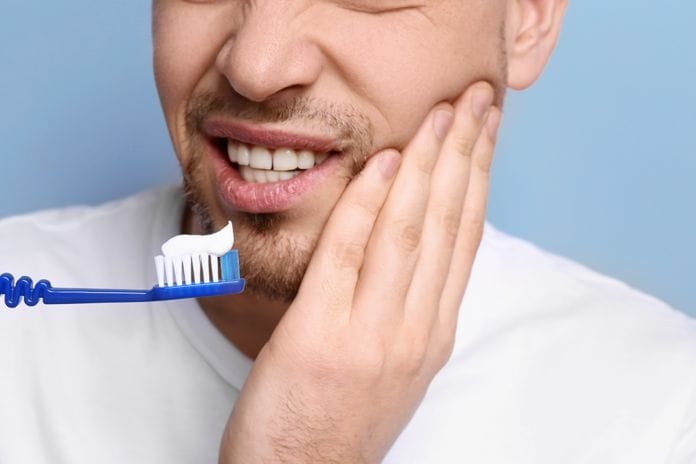The toothpaste aisle is stocked with multiple brands that claim to prevent enamel erosion and improve dentin hypersensitivity. However, a study published in the Scientific Reports reveals that toothpaste cannot protect dental enamel from erosion or abrasion alone. The full study, titled “Chemical and physical factors of desensitizing and/or anti-erosive toothpastes associated with lower erosive tooth wear,” was conducted by researchers at the University of Bern in Switzerland and the University of São Paolo in Brazil.
Samira Helena João-Souza, a PhD scholar at the University of São Paulo’s School of Dentistry in Brazil and first author of the article, said their team decided to focus on studying the effects of desensitizing and anti-erosion toothpaste on dental enamel since erosive enamel loss can lead to hypersensitivity. This is because continued abrasive activities on the enamel surface, due to aggressive brushing and other factors, can cause erosive effects. When the enamel is worn down, it can expose the underlying dentin underneath. Dentin has small holes or open tubules that allow hot and cold temperatures to stimulate the nerves inside the tooth. As a result, patients with exposed dentin may be more sensitive to hot or cold temperatures and experience a heightened level of discomfort when they drink and eat food.
The Study Methodology
For the study, the research team analyzed nine different types of toothpaste to see if they could prevent dental enamel erosion or lesson hypersensitivity. Eight of the toothpaste brands claimed to have anti-erosive or desensitizing ingredients, while the last product, a conventional fluoridated toothpaste, acted as a control. The tests were done in vitro over a period of five days using 150 enamel specimens from sound human premolar surfaces, a brushing machine, and artificial saliva. The researchers used a microhardness test to measure how much tooth enamel was lost during the five erosion-abrasion cycles.
Since toothpaste products have complex formulas, the scientists decided to measure each brand’s chemical and physical properties as well to see if it could influence its effectiveness against dental erosion. A chemical analysis measured the amount of fluoride, pH levels, calcium, phosphate, and levels of tin in the toothpaste. Meanwhile, a physical analysis examined how easily they could spread the toothpaste on the tooth’s surface (or wettability), particle size, and weight of solid particles.
The Study Results
At the end of the experiment, the scientists discovered each toothpaste presented different degrees of enamel surface loss during the five day period. Although the tests indicated some brands caused less damage to the tooth’s surface, most of them had very similar results. Dental enamel loss occurred independently of whether the toothpaste brands said they could help make teeth less sensitive or prevent dental erosion. Fluoride and pH were the only factors that were not associated with enamel surface loss. Toothpastes with lower rates of enamel surface loss had higher concentrations of tin, calcium, and phosphate.
Professor Ana Cecília Corrêa Aranha, João-Souza’s supervisor and a co-author of the article, wants to continue their research by evaluating the level of pain patients experience with hypersensitive teeth due to exposed dentin. Both researchers also said they want to conduct additional dental studies in a more clinical setting than their current in vitro tests.
Improper brushing can cause dentin exposure along with harsh and abrasive toothpaste. When combined with other factors like a diet filled with acidic drinks and foods, it can impact the patient’s oral health. The researchers believe that although toothpaste cannot prevent dental erosion or hypersensitivity alone, it can complement good oral hygiene habits when paired with a more healthy lifestyle and diet.
SEE ALSO: 5 Reasons Why You Might Have Sensitive Teeth
DON’T MISS: Charcoal White: The Charcoal Teeth Whitening Trend In Your Social Media Feed











